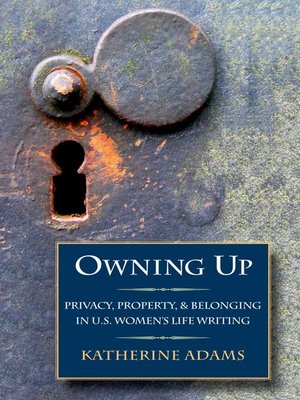
Sign up to save your library
With an OverDrive account, you can save your favorite libraries for at-a-glance information about availability. Find out more about OverDrive accounts.
Find this title in Libby, the library reading app by OverDrive.



Search for a digital library with this title
Title found at these libraries:
| Loading... |
Owning Up argues that from its beginning the U.S. discourse on privacy has been couched in terms of violation and dispossession, so that even as nineteenth-century Americans came to regard privacy as a natural right, and to identify it with sacred ideals of democratic freedom and individuality, they also understood it as under threat or erasure. Using biographical and autobiographical writing as her primary archive, Adams traces the public narrative of imperiled privacy across five centuries. Her analyses begin with the premise that nineteenth-century conceptions of privacy became meaningful only in negative relation to the encroaching forces of market capitalism and commodification. Where previous studies treat privacy as a stable category whose defining features are middle-class domesticity and femininity, Owning Up contends that privacy is an empty category that lacks fixed content and requires constant re-articulation via panic narratives in which gender always operates in intersection with race. Chapters look at how the discourse of imperiled privacy develops in conjunction with Romantic idealism and antebellum reform, racial reconstruction and the ethic of self-right, and Social Darwinist laissez faire, and culminates at the end of the century in calls for legislation to protect the American individual's "right to be let alone."






